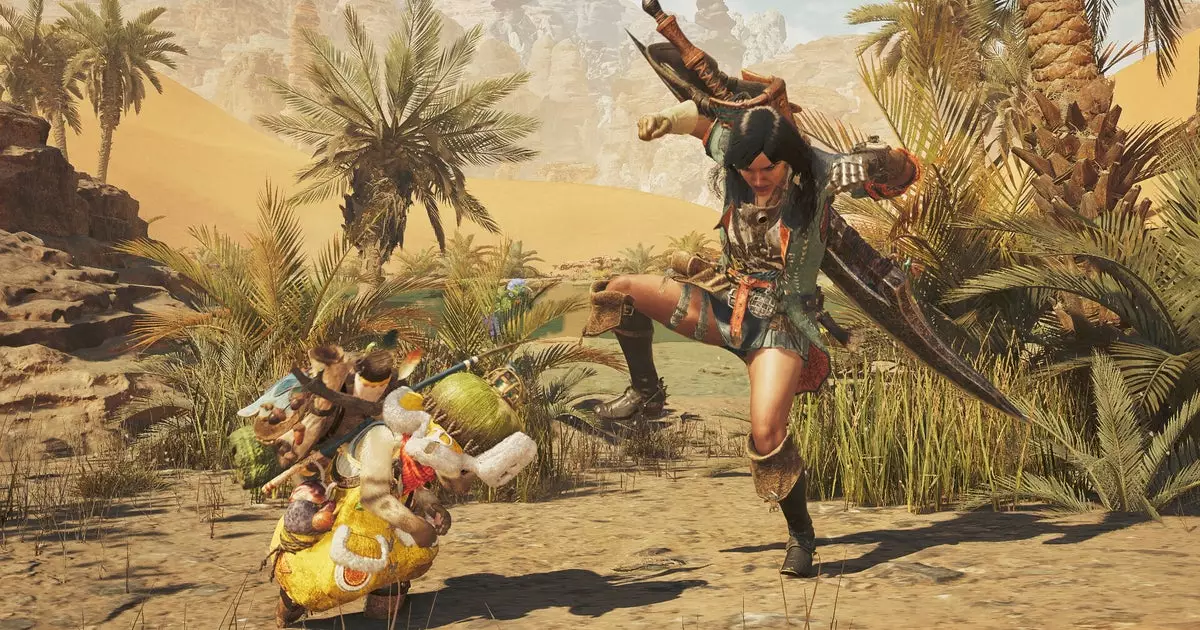Character creation in video games can often transform an initial gaming experience into a trial of endurance. If we examine common trends, many gamers will spend around three hours designing their avatars, and the figure can skyrocket to four hours if the game is from Bethesda. Such time investment might occasionally feel less like an exhilarating opportunity for self-expression and more like an arduous undertaking, pondering over every minute detail. This article digs deeper into the nuances of character creation and examines the often frustrating monetization tactics employed by various gaming companies, particularly in the wake of titles such as Monster Hunter Wilds.
Recent developments in the realm of video gaming have shifted the focus to monetizing character creation features. Capcom’s Monster Hunter Wilds illustrates this trend effectively. Upon launch, players discovered additional costs associated with modifying their character’s appearance and attributes post-creation. For a fee—approximately £5.49, €6.99, or $6.99—they can purchase a Character Edit Voucher, enabling them to completely overhaul their avatar. Initially, this may seem innocuous, especially given that the base game includes one free voucher. However, it poses several philosophical questions regarding the future of character customization and player autonomy.
Should players be subjected to financial constraints when they wish to express themselves through their character? The notion that meaningful aesthetic revision should require real-world currency feels disheartening for many players who find joy in creating characters that resonate with them. The availability of both monetary and non-monetary options leaves an ambiguous space where financial transactions overshadow creative expression, compelling players to choose between sticking with an unsatisfactory creation or spending additional money.
Creating a character that truly embodies a player’s identity is more than just a cosmetic decision; it is about forging a connection with the game world. The existence of character editing tools seems to promise personalization, yet the limitations imposed by microtransactions highlight a more significant issue. While Monster Hunter Wilds does allow some modifications for free—such as changes to hair, makeup, clothing, and other visual elements—many players may feel that the holistic vision of their character remains incomplete without the ability to overhaul facial features or body structure without incurring further costs.
What makes this practice more staggering is that it is not an isolated tactic but part of a broader strategy seen across the gaming industry. Capcom’s previous exploits, notably with Dragon’s Dogma 2, included numerous pieces of DLC linked to essential gameplay mechanics. This behavior intensifies the debate around the values held by contemporary gaming companies: are they catering to artistic expression, or are they strictly adhering to profit-driven motives?
Such monetization tactics could have long-lasting repercussions on players’ engagement with games. When core features of a gaming experience become restricted by microtransactions, players may adopt a more skeptical view of the gaming industry as a whole. This could cause a ripple effect, where gamers become more hesitant to invest time and money into new titles, fearing they may be faced with an avalanche of additional charges for features once considered standard.
Moreover, these practices directly contradict the genres aiming to cultivate a sense of immersion and ownership over one’s character. If players sense that one facet of their gaming journey relies heavily on spending money, the very foundation of engagement begins to erode. The frustration stemming from such business models may lead players to explore alternative genres or independent titles—driving a wedge between players and franchises that they once held dear.
The discourse surrounding character creation in video games encapsulates far more than just the act itself; it is a reflection of the delicate relationship between creativity and commercialization. As gamers, advocating for a balance between imaginative expression and fair practices is paramount in shifting the industry’s focus back towards providing enriching experiences rather than merely squeezing financial gain from their audiences. In this still-evolving landscape, the future of character creation remains uncertain, but one thing is clear: it is crucial to keep the spirit of gaming alive, free from excessive monetization. As we navigate this new gaming terrain, we must consciously support developers who align with our values and prioritize immersive creativity over profit-driven mechanics.

